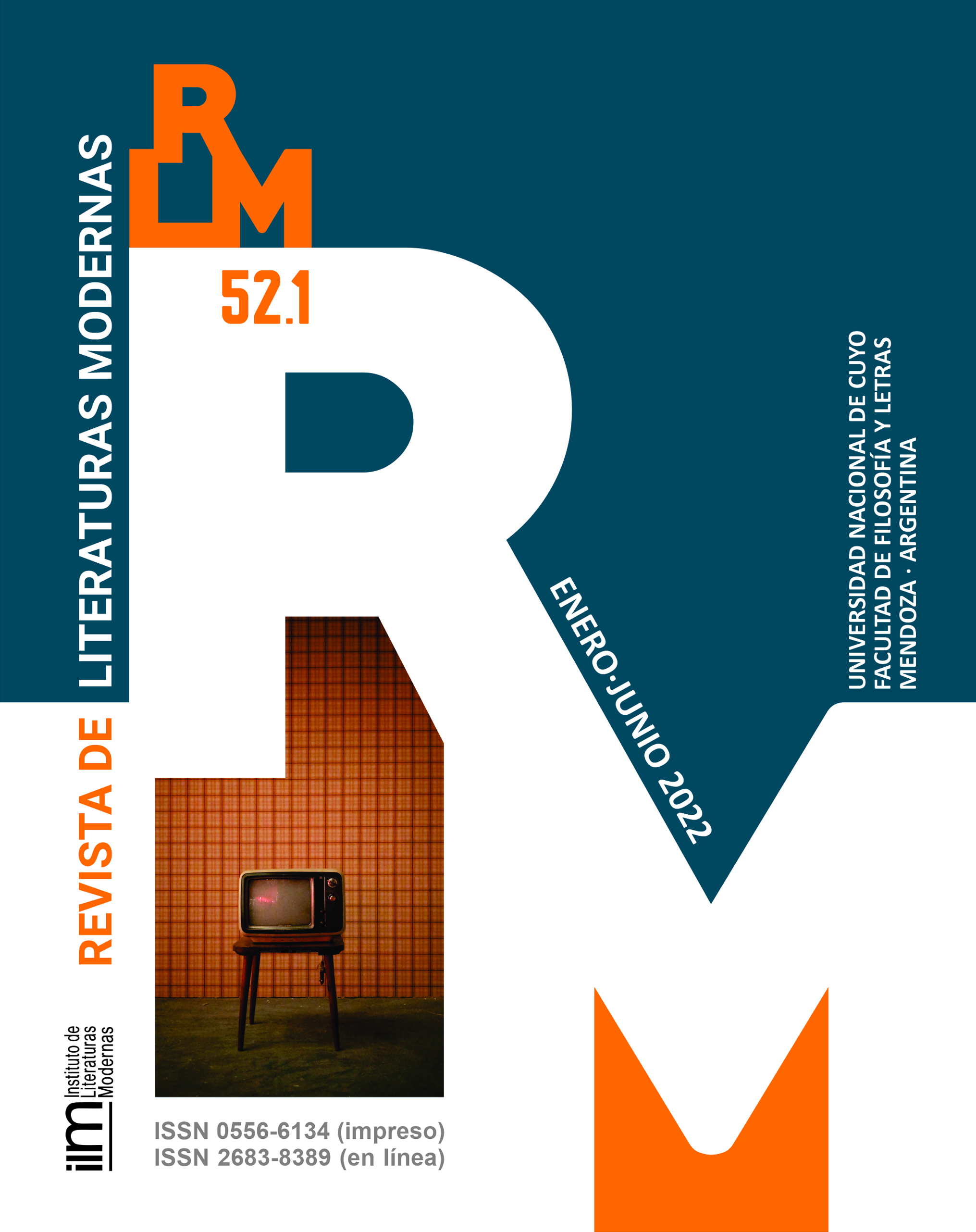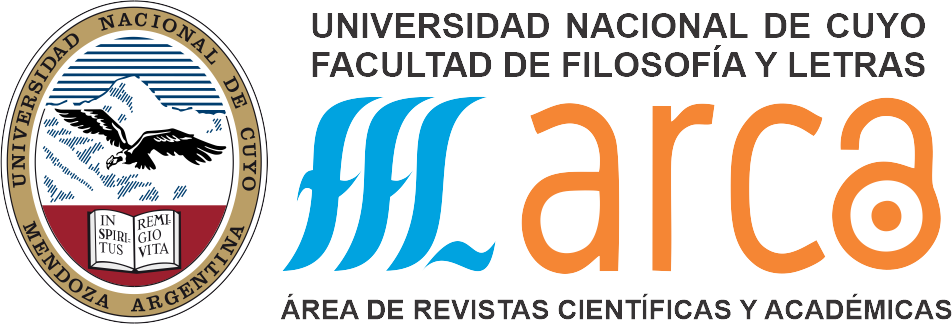Invention, Inversion, and Simulation. The Sexual Difference in Onetti, Donoso, and Puig
Keywords:
Novel, Onetti, Donoso, Puig, Sexual DifferenceAbstract
This work compares the narrative strategies of transgression in three South American novels of the second half of the 20th century written respectively by Onetti, Donoso and Puig. Looking at the sexual difference, these strategies will be analyzed through the elements of the story (characters, action) and discourse (metaliterary techniques, discordance between gender and noun, non-learned literary forms). Thus, the invention of realities in Onetti, the inversion of the sexual in Donoso and the simulation of the popular in Puig will be appreciated as forms of transgression verbalized and employed by the dimension of the sexual, be it at the level of the characters, at the narrative level, or at both levels. It will be concluded that the perspective of sexual difference, beyond the claim of a particular (a)sexed identity, serves as a discursive form of resistance against capitalist heteropatriarchal language and norms. More than half a century after their publication, in the midst of the 21st century, the reading of these novels shows the relevance they have today on the question of gender, and more broadly, the sociopolitical in literature.
Downloads
References
ACHUGAR, HUGO. 1979. Ideología y estructuras narrativas en José Donoso. Caracas: Celarg.
ACHUGAR, HUGO. 1990. “Prólogo”. Donoso, José. El lugar sin límites. El obsceno pájaro de la noche. Caracas: Ayacucho.
BENEDETTI, MARIO. 1969. “Juan Carlos Onetti y la aventura del hombre”. García Ramos, Reinaldo, comp. Juan Carlos Onetti. La Habana: Casa de las Américas.
BOSCHETTO, SANDRA. M. 1983. “La inversión como aproximación al mundo femenino en algunos relatos de José Donoso”. Hispania 66, 4, Madrid, dic.: 532-41.
BRAUDRILLARD, JEAN. 1978. Cultura y simulacro. Trad. Pedro Rovira. Barcelona: Kairós.
CASTILLO, DEBRA A. 1989. “Escritura/Mujer: El signo de ruptura en Dostoievski y Onetti”. Discurso literario, 6, 2, Asunción, primavera: 329-49.
DONOSO, JOSÉ. 1966. El lugar sin límites. México D.F.: Joaquín Mortiz.
GASPAR, CATALINA. 1998. “Ficción y realidad en la productividad metaficcional: a propósito de El obseno parajo de la noche y La vida breve”. Iberoamericana (1977-2000), 22, 2, Berlín: 63-80.
HOCQUENGHEM, GUY. 2000. Le désir homosexuel. 1972. Paris: Fayard
KERR, LUCILLE. 1987. Suspended Fictions. Chicago: U of Illinois.
LEWIS, BART L. 1982. “Man Woman Novel: Juan Carlos Onetti and the Modern Latin American Narrative”. Missouri Philological Association, 7: 20-25.
LUDMER, JOSEFINA. 1977. Onetti. Buenos Aires: Sudamericana.
ONETTI, JUAN CARLOS. 1992. La vida breve. 1950. Buenos Aires, Barcelona: Edhasa.
PEREIRA, MARÍA CLARA. 2001. “Un lugar sin límites: Bajo la mirada de Sarduy”. Cuadernos de literatura, 7, 13-14, Bogotá: 194-200.
PUIG, MANUEL. 2005. Boquitas pintadas. 1972. Barcelona: Seix Barral.
RICHARD, NELLY. 1993. Masculino/Femenino. Santiago: Francisco Zegers.
SARDUY, SEVERO. 1969. Escrito sobre un cuerpo. Buenos Aires: Sudamericana.
ZIMA, PIERRE V. 2000. Pour une sociologie du texte littéraire. 1978. Paris: L’harmattan.
Downloads
Published
How to Cite
Issue
Section
License
Copyright (c) 2022 Dionisio Márquez Arreaza

This work is licensed under a Creative Commons Attribution-NonCommercial-ShareAlike 4.0 International License.








